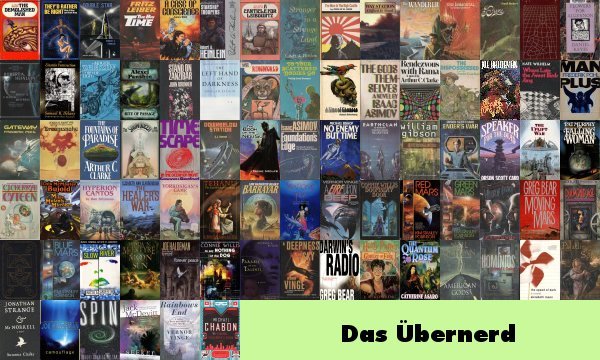 Blade Runner
Blade Runner1983 Hugo Winner for Best Dramatic Presentation
There's three films that I think have defined the look of every science fiction film that has followed: Star Wars, Alien (which borrowed a lot of set design from Star Wars but find me an alien monster not inspired by H. R. Geiger now), and Blade Runner. Blade Runner itself borrowed a lot of visual techniques from film noir and placed them in the context of a sharp, grimy near future.
In the distant year 2012 Decker is a retired blade runner, a hunter of rogue replicants. Replicants are androids which are physically superior to humans in every way except that they have a built-in life span of four years. Replicants have been banned on earth and so when some of them do turn up on earth the blade runners hunt them down using psychological tests to identify them. A group of replicants comes back to earth to find their creator lead by a high end military unit and when they kill one of Decker's old friends he feels obligated to come out of retirement to hunt them down.
The movie wanders very far from it's source material, Phillip K. Dick's Do Androids Dream of Electric Sheep. The fact that the title has changed helps mitigate some of the sting of that and the fact that director Ridley Scott built a pretty good science fiction film out of the adaptation process helps forgive more. It does bother me that most editions of Dick's book since the movie have the title Blade Runner but I can't blame the movie for being successful.
As mentioned the film is visually stunning in a way that still images can't convey. Scott took advantage of some old techniques and played up the contrast between light and shadows in the film and they constantly shift. On top of that he works with a very dynamic camera that moves through the sets in a way that makes them feel more lived in.
Blade Runner presents some core science fiction concepts rarely put on screen and for that alone it is worthy of praise. The androids are seeking meaning in their short lives and trying to be human. They're not simple movie monsters lurking and killing off the humans; they're sympathetic.
I do have some problems with the pacing since the film seems to switch gears so often that it can leave you dizzy. The hunt for androids in the population tends to fade to the background as the replicants tend to just come out and fight. Decker spends quite a while doing things that don't really connect directly to his investigation. Still Blade Runner has what I find to be one of the greatest climaxes in film history (not just science fiction films) so the choppiness of the scenes leading to it can be excused.
I can't end this review without mentioning the three different cuts of the movie. Obviously the Hugo was handed out for the original theatrical cut which is my current preference. Scott's director's cut was released in the early 90's removes a voice over narration and adds in some shots to give the film a "twist ending". Finally there is a new cut of the movie released in the past few months which I have not seen yet (it's in the mail so I'll comment on it when I see it). While I don't want to give out spoilers for the end of the movie I am not particularly happy with the twist added since it requires that the majority of the people in the early part of the film be lying solely for the purpose of fooling the audience. There's no need for the conspiracy gymnastics they would have to run through to allow the ending to work since a much more direct and simple option is available. So it's a twist that only exists to screw with the viewer's head and doesn't make sense in the context of the film. The other changes in the director's cut are fine to me but that one puts the rest of the film in a bad light.
Blade Runner is an exceptional movie. Well made on every level and well worth the attention it has received over the years. If you haven't seen it then now is the time to get a copy of it with the original version being widely available again.



